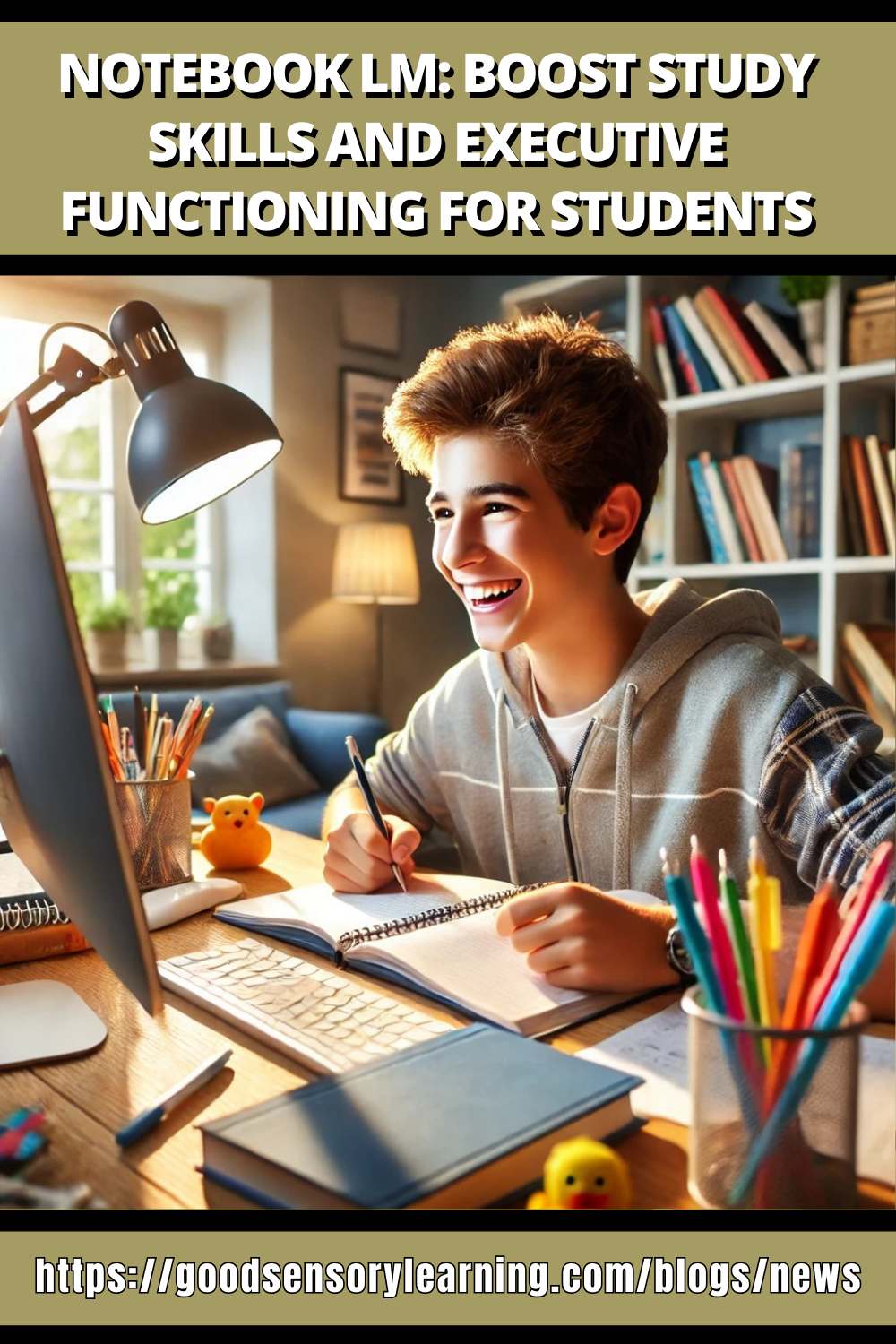The AI Effect on Learning: Supporting Disabilities and Reshaping Cognitive Demands
Artificial Intelligence is rapidly transforming education, rewriting the way students learn, process information, and demonstrate their understanding. Tools like NotebookLM, ChatGPT, and other AI-powered platforms are revolutionizing how students access and engage with content, offering unparalleled support for those who have historically struggled in traditional learning environments. While these advancements may level the playing field for many individuals with learning disabilities, they are also subtly redefining cognitive expectations—potentially giving rise to new learning challenges that have yet to be fully recognized.

AI as an Equalizer for Learning Disabilities
For years, students with dyslexia, ADHD, executive functioning challenges, and other learning disabilities have faced barriers that made academic success more difficult. AI-powered tools are offering accommodations that were once unavailable or required human intervention.
-
Enhanced Reading and Writing Support: AI-driven speech-to-text and text-to-speech applications, like Speechify and Google's voice typing, are reducing the cognitive load for students with dyslexia, helping them access written content with ease.
-
Executive Functioning Assistance: Planning tools such as Shovel and AI-integrated calendars help students with ADHD manage time more effectively, reducing the stress of deadlines and forgotten assignments.
-
Real-Time Feedback and Scaffolding: AI tutors can offer step-by-step problem-solving assistance, helping students with working memory deficits process information in digestible chunks.
-
Mind-Mapping and Organization: AI-powered visual thinking tools like iVVi allow students to see their thoughts spatially, making abstract connections more concrete.
In many ways, AI is an unprecedented accessibility tool—providing scaffolding that can help students with disabilities compete on a more equal footing. But while AI is removing some barriers, it may also be erecting new ones.

The New Cognitive Demands of AI: The Rise of Simultaneous Processing Challenges
As AI tools become integral to education and professional fields, they are introducing new cognitive demands that may disadvantage individuals who struggle with specific types of processing. While many students benefit from AI-generated assistance, effectively using these tools requires a skill set that is not universally accessible.
-
Simultaneous Processing Overload: Effective AI usage often requires rapid, simultaneous processing—where users must integrate multiple data points at once, discern relevance, synthesize key ideas, and generate meaningful output. This could disadvantage students with slower processing speeds, those with difficulties in working memory, or individuals who require linear, sequential processing to function optimally.
-
Metacognitive Strain: AI can generate vast amounts of information quickly, requiring users to filter, refine, and structure responses. For students with executive functioning deficits or weak metacognition, this process can be overwhelming and lead to cognitive paralysis rather than efficiency.
-
Loss of Deep Learning: If students become over-reliant on AI to generate responses without critically engaging with the material, they may struggle with deep comprehension and retention. This could lead to a new form of 'AI-induced learning disability,' where critical thinking and analytical skills deteriorate due to passive information consumption.
-
Dependence Without Mastery: AI tools may unintentionally reinforce learned helplessness in students who struggle with self-initiation, reducing their ability to develop independent problem-solving strategies.

What New Learning Disabilities Could Emerge?
As AI becomes deeply integrated into education and the workplace, new forms of cognitive challenges may be recognized and categorized. Some potential areas of concern include:
-
AI-Induced Cognitive Overwhelm: A condition where students struggle to synthesize AI-generated content, leading to information overload and difficulty producing coherent output.
-
Executive Dysfunction in Digital Environments: A growing difficulty in managing AI-assisted workflows, resulting in poor task initiation, organization, and completion.
-
Over-Reliance on AI Processing: A phenomenon where students fail to internalize concepts due to habitual dependence on AI-generated responses, weakening critical thinking and problem-solving skills.
-
AI-Dependent Literacy Issues: With voice assistants and AI-generated writing tools, some students may struggle to develop traditional literacy skills, leading to potential challenges in comprehension and communication when AI is not available.
Adapting to the Changing Landscape
As educators, learning specialists, and executive functioning coaches, we must recognize that AI is not just a tool—it is an evolving force that is shaping cognition in real-time. To ensure that students are not left behind by this shift, we must:
-
Teach AI Literacy: Educators must guide students in how to use AI effectively while maintaining critical thinking, problem-solving, and independent learning skills.
-
Develop Executive Functioning Strategies for AI: Explicit instruction in filtering, organizing, and structuring AI-generated content can help students avoid cognitive overload.
-
Balance Traditional and AI-Enhanced Learning: Encouraging students to engage in non-AI-based critical thinking exercises will help them maintain fundamental cognitive skills.
-
Recognize and Accommodate Emerging Learning Needs: Just as AI has provided solutions for existing learning disabilities, we must anticipate and address the challenges it may create.
The rise of AI is not just transforming education—it is redefining what it means to learn, process, and think. While this shift will empower many students, it will also challenge others in unforeseen ways. As we move forward, we must remain vigilant, ensuring that our cognitive diversity is not only accommodated but also celebrated in the AI-driven world.
Cheers, Erica
Dr. Erica Warren is the author, illustrator, and publisher of multisensory educational materials at Good Sensory Learning. She is also the director of Learning to Learn and Learning Specialist Courses.
- Blog: https://goodsensorylearning.com/blogs/news
- YouTube Channel: https://www.youtube.com/user/warrenerica1
- Executive Function Podcast: https://goodsensorylearning.com/pages/the-personal-brain-trainer-podcast-with-dr-erica-warren
- Store: http://www.Goodsensorylearning.com/
- Courses: http://www.learningspecialistcourses.com/
- Newsletter Sign-up: https://good-sensory-learning.kit.com/drericawarren




Leave a comment
This site is protected by hCaptcha and the hCaptcha Privacy Policy and Terms of Service apply.